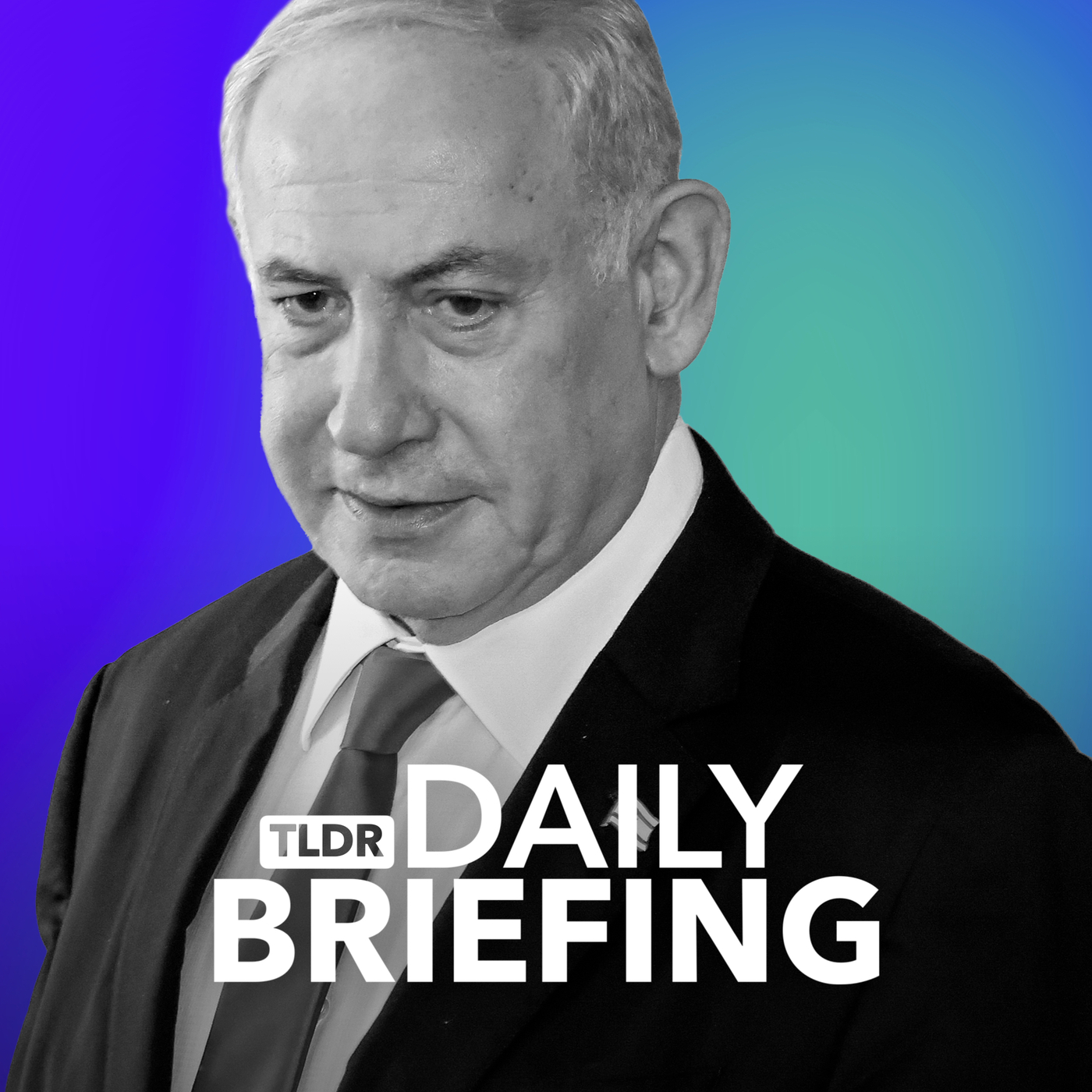
Deep Dive
Why did Israel carry out drone and artillery strikes in Lebanon despite the ceasefire agreement?
Israel justified the strikes by claiming Hezbollah had already broken the truce. The Israeli government stated they would continue to strike with an iron fist against alleged violations by Hezbollah.
What are the terms of the Israel-Hezbollah ceasefire agreement?
The ceasefire stipulates that the Israel Defense Forces will gradually withdraw from Lebanon over 60 days, with the Lebanese army replacing them. Hezbollah is prohibited from rebuilding infrastructure in southern Lebanon and must reposition north of the Litani River.
What is Keir Starmer's plan for change in the UK?
Starmer plans to introduce an extra 13,000 neighbourhood police officers, including a named contactable officer in each community, funded by an additional £100 million of government funding.
Why does Admiral Sir Tony Radikin believe the world is entering a third nuclear age?
Radikin cites Russia's threats of tactical nuclear use, China's nuclear buildup, Iran's failure to cooperate with the IAEA, and North Korea's ballistic missile program as factors contributing to this new nuclear age.
What factors contributed to Bitcoin surpassing $100,000 in 2024?
Bitcoin's surge was influenced by Donald Trump's election victory, his promise to make the U.S. the crypto capital, and the nomination of Paul Atkins to the SEC, who is seen as more pro-cryptocurrency and lax on regulation.
Who were the winners of the 2024 Reporters Sans Frontieres Press Freedom Awards?
Winners include Palestinian journalist Wael Al-Daghdouh, Ukrainian journalist Natalia Gumenyuk, Indian YouTube journalist Ravish Kumar, Burkina Be journalist Mariam Uedraogo, and Belgian photojournalist Gaël Therrien.
- Ceasefire violations by both Israel and Hezbollah.
- Casualties on both sides.
- Humanitarian crisis in Lebanon.
Shownotes Transcript
Today, Israel appears to break the agreed ceasefire in Lebanon. UK Prime Minister Keir Starmer sets out his plan for change and the head of the British military says the world could be entering a third nuclear age. From TLDR News, this is your daily briefing for Thursday 5 December 2024.
In our spotlight today, we have a look at Lebanon, where Israel appears to have broken some of the terms of the previously agreed ceasefire. Specifically, Israeli forces carried out drone and artillery strikes in Lebanon on Tuesday, including one on a southern town which the health ministry said killed one person.
For their part, the Israeli government has justified this strike by arguing that Hezbollah had already broken the truce. Israeli Prime Minister Benjamin Netanyahu explained that he would keep striking with an iron fist against alleged violations of the truce by Hezbollah, which has taken the form of near-daily strikes by Israel. In total, these strikes have killed at least 15 people.
Now, on Monday, Hezbollah responded to these strikes, with two projectiles fired towards an Israeli-held disputed border zone. This was the first strike from Hezbollah since the start of the truce, and it seems to be what Israel responded to on Tuesday. However, the issue is that the Israeli government had been vague about what exactly they would count as truce violations
prior to Hezbollah's attack on Monday. Just to recap the terms of the truce, the ceasefire stipulates that the Israel Defense Forces will gradually withdraw from Lebanon over the next 60 days, with the Lebanese army replacing them. It's based on a pledge to respect the UN's 2006 resolution, which requires Hezbollah to move away from the border with Israel.
As such, Hezbollah will be prohibited from rebuilding its infrastructure in southern Lebanon and is expected to reposition north of the Litani River. US President Joe Biden assured both sides that the US and France would collaborate with Israel and Lebanon to ensure the deal is fully implemented, while clarifying that no US troops would be deployed in southern Lebanon.
So far, the renewed conflict, which began last year when Hezbollah began firing rockets into Israel in support of Hamas, has claimed the lives of over 3,700 Lebanese and more than 140 Israelis, displacing over a million Lebanese and around 60,000 Israelis. Initially confined to minor exchanges of fire, the conflict intensified into a full-scale war, particularly following Israel's substantial bombardments and ground incursions before the ceasefire was agreed.
Now, before we continue, I just wanted to quickly thank everyone who continues to watch and like The Daily Briefing every single day. Making these videos requires a lot of research and hard work to make sure that we bring you the most up-to-date and accurate news every day. And that's also an expensive process. If you want to support our journalism in 2025 and make sure we can keep doing The Daily Briefing, there's no better way to do this than by purchasing a copy of our magazine too long.
For those of you who don't know, Too Long is our physical magazine where every four months we dive deep into the stories we care about and you should know about. The next issue, set to be published on December 1st, will run through every election that happened in 2024, a year shaped by landmark elections across the globe, from the UK and US to elections in Bangladesh, Indonesia, Mexico, Rwanda and the biggest democratic exercise in history in India.
It's not just elections either. The next edition of Too Long will also discuss the first months of the new Labour administration in the UK, unpack the successes and failures of the Biden administration, ask why Europe feels so leaderless right now,
cover the ongoing conflict in Ukraine and Israel, and much, much more. You can pre-order your copy now at too-long.news. Better still, you can also subscribe to get 25% off every copy as long as you're a member, and get every copy sent to your front door or inbox. Plus, if you use the code TOODAILY, you'll get an additional £2 off your order, which could bring the price down as low as £5.49. The link's in the description, and thanks for your support.
Moving to the UK now, where Prime Minister Keir Starmer is attempting to turn a fresh page on his premiership in order to demonstrate to the electorate that he is delivering change. The first of these announcements is that the government will introduce an extra 13,000 neighbourhood police officers, including a named contactable officer in each community. This will be paid for with an extra £100 million of government funding.
If the Prime Minister is successful in his plan, it would boost police numbers to a level above the 2010 peak. Speaking about the policing pledge, Labour insiders explained last week that numerical targets are more memorable for voters.
Explaining the role of these officers further, Starmer said that these officers must demonstrably spend time on visible patrol and not be taken off the beat to plug shortages elsewhere. For their part, the Conservatives have criticised the move. Tory leader Kemi Badenoch branded the speech as an emergency reset. There is some reason to believe that this may be the case. Starmer has been under fire for months as Prime Minister, with him being heavily criticised for the freebies he received from Labour peer Lord Ali.
It was only a couple of weeks ago that a petition received more than 2 million signatures calling for a new general election. But whether this reset will work is yet to be seen. Next up, the head of the British military has said the world is on the brink of entering a third nuclear age, after the first nuclear age of the Cold War and the second nuclear age of expanding proliferation in Asia. The comments were made by Admiral Sir Tony Radikin on Wednesday in an annual address at the Royal United Services Institute defence think tank in London.
Radikin said, from Russia, we have seen wild threats of tactical nuclear use, large-scale nuclear exercises and simulated attacks against NATO countries, all designed to coerce us from taking the action required to maintain stability.
China's nuclear buildup poses a two-peer challenge to the United States. Iran's failure to cooperate with the International Atomic Energy Agency is a concern, and North Korea's ballistic missile program and erratic behavior prevent a regional and increasingly a global threat. His remarks followed claims made earlier on Wednesday by Mark Rutter, NATO's Secretary General, that Russia was assisting North Korea's nuclear program in exchange for Pyongyang's military assistance in Ukraine.
Kim Jong-un has sent thousands of North Korean troops to be deployed for Russia, in a move Radikin described as "the year's most extraordinary development." In other news, Bitcoin's surge is continuing, as the cryptocurrency on Thursday surpassed the $100,000 mark for the first time.
2024 has been remarkably good for Bitcoin, which has more than doubled in value this year and has been catapulted to new heights following Donald Trump's election victory in November, with investors viewing the future Trump administration as a crypto-friendly one. Trump has promised to make the United States the crypto capital of the planet, and on Wednesday he nominated Paul Atkins to the chair of the US Securities and Exchange Commission, or SEC.
Atkins is seen as far more pro-cryptocurrency and more lax on regulation than the current SEC head Gary Gensler. Bitcoin has taken a turbulent journey to get to this point, enjoying surges followed by precipitous downturns over the years. For example, in late 2021, it surpassed $60,000 before collapsing back below the $20,000 mark in 2022, around the time the crypto industry was reeling from the collapse of the FTX cryptocurrency exchange.
And finally, in today's uplifting story, we feature some of the journalists around the world who've been recognized in the 32nd edition of the Reporters Sans Frontieres Press Freedom Awards, which took place on Tuesday in Washington, D.C. Every year, the awards celebrate reporters and media organizations who have helped defend and promote press freedom worldwide.
For 2024, the laureates are: Palestinian journalist Wael Al-Daghdouh, who won the Courage Prize for reporting despite injuries and the deaths of his family members in Gaza; Ukrainian journalist Natalia Gumenyuk, who won the Impact Prize for co-founding The Reckoning Project, an NGO that documents war crimes;
Indian YouTube journalist Ravish Kumar, winner of the Independence Prize for defending journalism despite smear campaigns, Burkina Be journalist Mariam Uedraogo, recognized for her investigations into terrorism-related sexual violence, who won the Mohamed Maïga Prize for African Investigative Journalism, and Belgian photojournalist Gaël Therrien, who won the Lucas do Lega SAIF Photo Prize for his series The Ravages of Trank Dope on the US's opioid epidemic.
